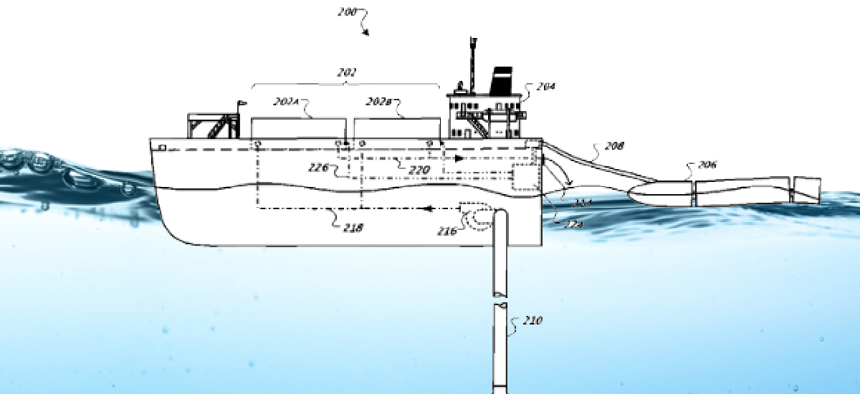Google's mystery barges keep world guessing

If Google is involved, is a floating data center that far-fetched?
A barge, docked at an old naval base off the coast of San Francisco called Treasure Island, has everyone guessing about its true purpose. CNN discovered that the strange vessel is owned by Google. Speculation on its purpose ranges from a marketing center for Google Glass to some type of a new data center.
Now, a second mystery barge has been spotted off the coast of Portland, Maine, also said to be the work of Google.
Personally, I believe they are a new type of data center that is cooled, or perhaps even somehow run, on sea water. The New York Times noted that Google applied for a patent for a floating data center. According to the patent, number 7525207 B2, the "system includes a floating platform-mounted computer data center comprising a plurality of computing units, a sea-based electrical generator in electrical connection with the plurality of computing units, and one or more sea-water cooling units for providing cooling to the plurality of computing units."
But the sea-based data center would need to be built on the water. And Google has been quite proactive in pioneering new data center technologies. It recently pulled back the curtain on the secrets that keep its massive data centers running efficiently. The techniques engineers employ — from minimizing computer footprints by removing their casings to using curtains instead of walls to direct airflow to innovative ways to keep the hot and cold sides of their data centers working — are pretty amazing. You can bet that other organizations have started to copy them.
The government has been looking for ways to improve its own data center operations, especially since some reports suggested that data centers can be run more efficiently. The focus of the Federal Data Center Consolidation Initiative is to reduce costs, and energy use — a lot of it involving cooling — is the biggest component of data center costs.
We've already seen the creation of open and modular data centers and even reusing Cold War underground bunkers with their natural cooling effects to house racks of servers. All of these new ideas are geared toward making data centers work better, use less power and run more efficiently. Would a sea-based computing center, sitting on top of a nearly unlimited supply of cool water, if Google can get it working, really be that surprising?





